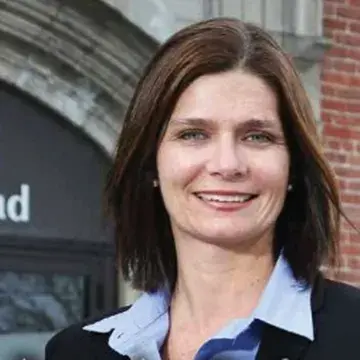Defending the Defenseless

When lower-income victims of domestic violence escape their abusive relationships, they often face a secondary barrage of battles – legal proceedings involving divorce, visitation and custody – without adequate funds or professional resources.
What can be done?
Enter Brook Ashley ’08, who has dedicated her professional life to ending violence against women. This February, she launched a new program designed to expand access to legal services for domestic violence victims who can’t afford lawyers. It’s called Partners Overcoming Domestic Violence.
“We wanted to create a program with a twofold purpose,” Ashley says. “One, we wanted to increase access to justice for survivors; and two, we wanted to increase the number of attorneys who are willing to take these cases and feel comfortable doing it.”
Partners Overcoming Domestic Violence is a collaboration between the Rhode Island Bar Association, RWU Law, Rhode Island Legal Services, the Rhode Island Commission Against Domestic Violence, and the Rhode Island Family Court. The group devised a model that effectively fused the bar association’s existing Volunteer Lawyer Program with a new mentoring program designed to pair experienced lawyers with younger attorneys seeking pro bono opportunities.
“The attorneys we’ve seen volunteer all have different backgrounds and are at different places in their legal careers,” Ashley says. “For most of them, this is not the area of law in which they usually practice, but they want to either give back or expand their areas of practice – and this is a great opportunity to do that. But the majority, honestly, are people who want to get involved because they recognize there is a problem and want to be part of the solution.”
That’s why Ashley herself has become involved in domestic violence prevention. For 15 years prior to law school, she had worked in a variety of emergency shelters, court and advocacy programs – and she sought to apply her legal education expressly to the fight to end violence against women.
“One of the things I found so attractive about Roger Williams, and something I really appreciated, was the Feinstein Institute [now the Feinstein Center for Pro Bono & Experiential Education] and the school’s commitment to teaching students the importance and value of service to others.
